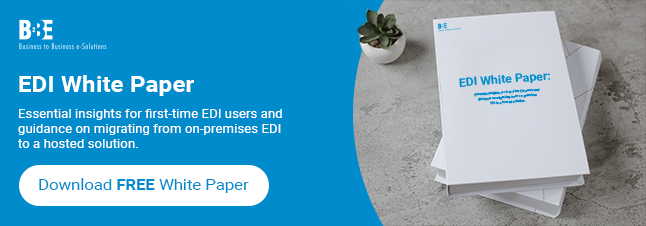In today’s increasingly digital business landscape, Electronic Data Interchange (EDI) has become a crucial tool for facilitating seamless communication and transactions between businesses. As more customers demand EDI capabilities from their suppliers, some businesses are faced with the challenge of becoming EDI capable.
This article aims to provide guidance on how businesses can navigate this process effectively. It focuses, in particular, on the growing importance of digital trade and the challenges it poses for smaller enterprises.
Understanding the Challenge of EDI and becoming EDI Capable
The transition to becoming EDI capable can be daunting for businesses. This might include concerns around the perceived cost and technical complexity associated with traditional EDI solutions. Many smaller businesses lack the budget and in-house expertise required to implement and maintain a traditional EDI system.
Fortunately, there is an alternative solution that addresses the challenges faced by smaller suppliers in becoming EDI capable. Unlike traditional EDI, Web EDI offers a browser-based interface that eliminates the need for costly software installations and technical expertise. With Web EDI, smaller businesses can leverage the power of electronic trading without the burden of complex setup processes or high upfront costs.
Key Benefits of Web EDI
For smaller businesses that are new to EDI, it’s important to understand that they may not need a full-blown EDI solution to meet their customers’ requirements. Instead, a Web-based EDI solution may be more suitable for their needs.
- Cost-Effectiveness: Web EDI is a cost-effective solution for businesses, with no need for expensive software or hardware investments.
- Accessibility: The browser-based interface of Web EDI makes it accessible to businesses of all sizes, regardless of technical expertise.
- Simplified Onboarding: offering a streamlined onboarding process, Web EDI allows businesses to quickly join their existing customers, who often are already connected via third-party suppliers and start trading electronically.
- 灵活性: Web EDI is flexible and scalable, allowing businesses to easily adjust their trading capabilities to meet changing demands.
下面请观看我们的视频综述:
How To Become Web EDI Capable
The transition to becoming Web EDI capable involves several key steps:
- Assessing Needs: Firstly, identify the specific EDI requirements of your customers and determine whether Web EDI is a suitable solution.
- Selecting a Provider: Research and select a reputable Web EDI provider that offers the features and functionality you need.
- Setting up an Account: Follow the provider’s instructions to set up your Web EDI account, including configuring document exchange settings and user permissions.
- Communicating with Customers: Finally, keep your customers informed throughout the transition process. Often, if your customers are already a trading partner of your supplier this process will be simple.
Becoming EDI capable may seem like a daunting task for smaller businesses, but with the right approach and the adoption of Web EDI, it can be a manageable and cost-effective endeavour. By embracing digital trade and leveraging the benefits of Web EDI, businesses can streamline their operations, improve efficiency, and enhance their competitiveness in the marketplace.
Find out more about B2BE’s Web EDI solution here.
About B2BE
B2BE delivers electronic supply chain solutions globally, helping organisations to better manage their supply chain processes, providing greater levels of visibility, auditability and control. We’re driven by a passion for what we do, inspired by innovation, and underpinned by a wealth of knowledge. With over 20+ years of experience, the B2BE teams operate worldwide.
欲了解更多信息,请访问www.b2be.com。

